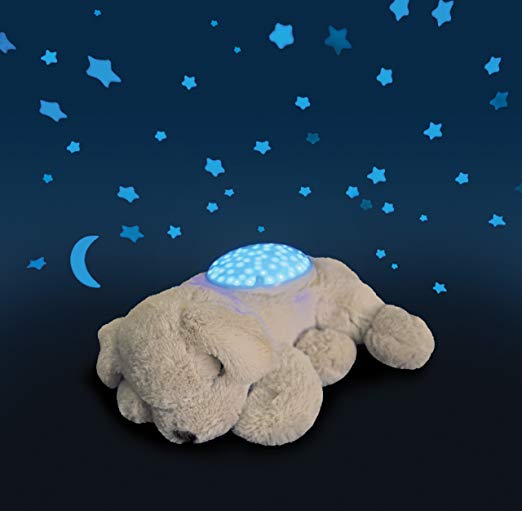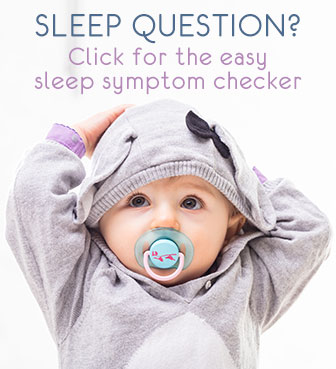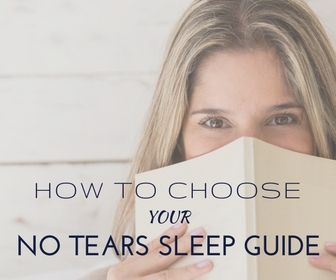3 Top Reasons to Use a Night Light for Better Sleep + How to Choose
Author Name: Heidi Holvoet, PhD
A night light in the baby room helps your baby and toddler sleep in three different ways:
- It's reassuring in the dark : especially helpful during baby separation anxiety phases
- Minimal arousal at night awakenings: critical for more and better sleep for baby and you
- A timed alarm clock light effectively helps your early bird toddler sleep longer
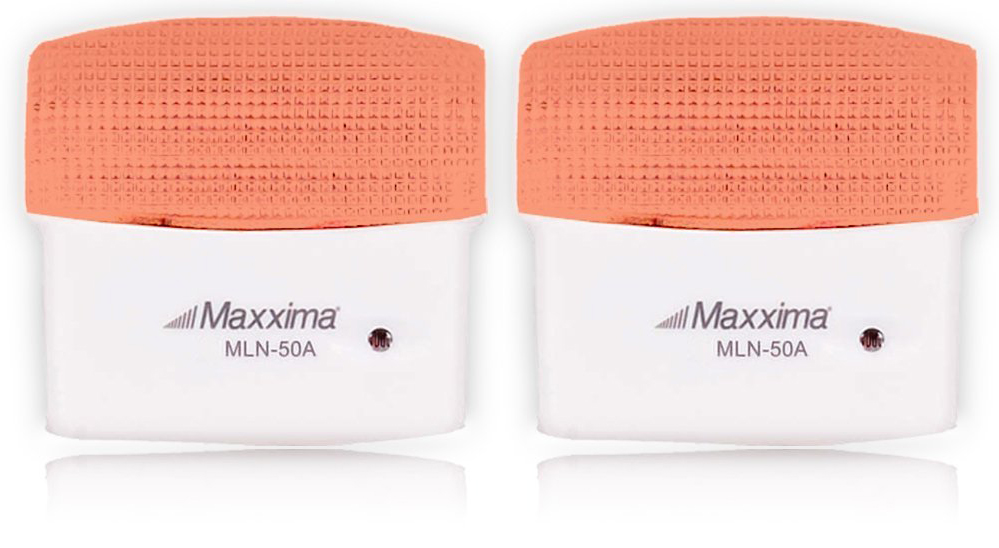
We'll examine these three uses in detail right below. The reason that's
most important to you right now will also help you choose the right
type for your situation.
But first, what makes a good night
light?
How to choose a good night light for the baby room
Choosing well is not complicated but it is important to get one that does what you need:
- It must be so dim that you don't see it through your eye lids when your eyes are closed
- It must be bright enough so you can tend to baby at night (for feeding, changing, comforting, ...) without switching on additional light.
-
It must be
free of blue light
because exposure to blue light right before bed or during the night
disrupts the healthy production of melatonin (the sleep hormone). So
always choose a night light that properly filters blue: good quality
red and amber night lights are usually the best choices.
When checking the brightness of your light: remember that light will always seem very dim during the day or with other lights on. But at night, when you've been in the dark and/or sleeping, that same light will appear much brighter. It's the 'night time' feel that you want to judge by.
Reason #1: Reassuring in the dark
Whether it's a newborn baby, a toddler or a bigger child: there is good
chance she will not feel safe in a pitch dark room.
A soft night light is reassuring and helps make your baby feel safer.
Feeling safe and secure is one of the basic 'conditions' to be able to
sleep - to
put it boldly, imagine trying to sleep in a room where you feel
threatened by gangsters ...
Choose a fun light, with decorations she likes, or one that emits soft
glowy lights.
The
Cloud
b Constellation
ones are adored by
many (!) parents and babies.
And of course, not all babies need a light ...
For my own children, a night light only started to seem
important from around 4-6 months old. Especially my oldest son, who
slept really well in those first months, was happy in a pitch dark
room. But after the first half year, the light quickly became rEAlly
important ...
In any case, whenever your child seems to sleep poorly and you think
she may not feel safe - like during a
separation
anxiety
phase: a night light often does
the trick well.
Reason #2: No-fuss night wakings
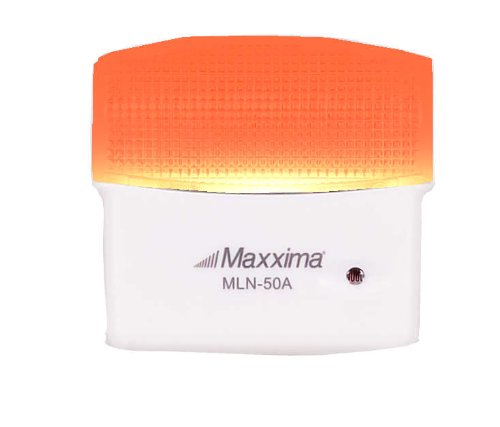
One key to help your baby with
sleeping
through the night
, is to keep night wakings as short as
possible, in order to disturb sleep minimally.
From your side at least, you will keep these nightly encounters as "low
profile" as possible.
That means you make these moments boring, interact as
little as possible and ...
keep lights dim
. Ideally you will have a
dimmed lighting throughout the night that is not disruptive to sleep
but at the same time enough to allow tending to your child.
A simple plugged light, like my personal first choice
Maxxima
Amber LED Night Light
is the most practical option. It is a
pure amber LED so does not show any of the blue part of light. This is
important to avoid disruption of melatonin production.
The specific reasons why you want to avoid needing to switch on extra
(bright) light at night are that:
- Baby may startle and wake up more than she would: this makes it more difficult to go back to sleep
-
Our bodies take light as a powerful wake-up signal (also known as
... "PLAY TIME!" to the little ones): again more difficult to go back
to sleep. And too much disruption of an already fragile sleep pattern.
So a gentle dim light that is on all night is ideal.
Reason #3: Avoid early bird toddler awakenings

One of the most typical toddler sleep problems is waking up early in
the morning. You
know, those early hours when you would give
anything
to get that extra
half hour sleep? And be able to sleep till at least 7am ... or maybe
even 8am or later?
A timed light set up as a toddler alarm clock is the way to go.
You can easily set one up for free or get a cute ready-made one: check
the page on
night
light alarm clocks for toddlers
for full details and my Top 3
recommendations.
Article Author: Heidi Holvoet, PhD - Founder, senior sleep consultant

Heidi Holvoet, PhD, is the founder of the Baby Sleep Advice website and movement, an award-winning author, baby & toddler sleep consultant with 15+ years experience as well as a certified lactation counselor.
Over the years, Heidi has received several awards inluding a Mom's Choice Award (MCA) and National Parenting Awards (NAPPA) for her Baby Sleep Advice website, programs and books. Also, Baby Sleep Advice was awarded "Most Trusted Infant's Sleep Solutions Company 2023" in the Benelux Enterprise Awards 2023.
Heidi continually conducts personal research and participates in continued education and in that way stays up to date with current scientific and pyschosocial infant care.
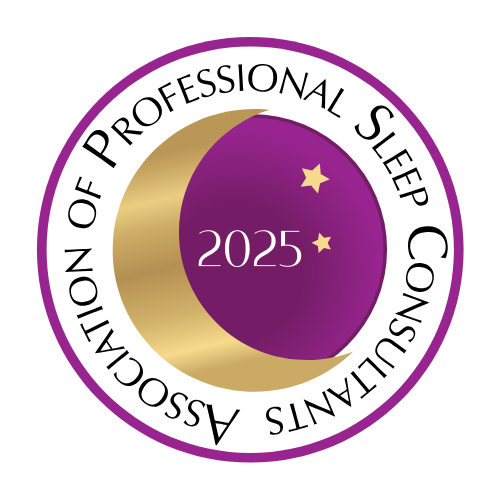
She is also a member of the Association of Professional Sleep Consultants of which she was one of the earliest contributors. She obtained her PhD degree in physics at the University of Ghent in Belgium.
Heidi is passionate about helping babies and their parents sleep more and better, with her trademark approach that has been proven and praised time and again by parents worldwide to be effective and truly no-tears. Respect for you as a parent and your baby, is at the heart of Heidi's warm and kind support. Her approach always keeps in mind a baby's needs and abilities at any given age, is based on pediatric science and the most up to date knowledge in infant care and sleep science.
As well as the award-winning baby sleep programs, Heidi offers popular 1:1 consults and easy-access 30-minute SOS Sleep sessions.
Back to all hand-picked product reviews

Baby waking every hour?
by Heidi Holvoet, PhD
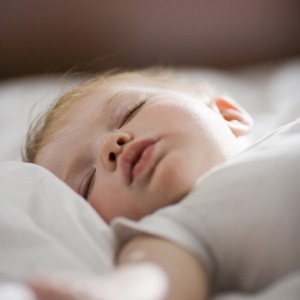
Sleep schedules by age
by Heidi Holvoet, PhD

Separation Anxiety
by Heidi Holvoet, PhD
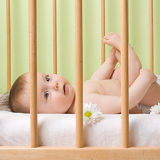
Crib safety guidelines
by Heidi Holvoet, PhD

Why does my baby wake up every hour?
by Heidi Holvoet, PhD

